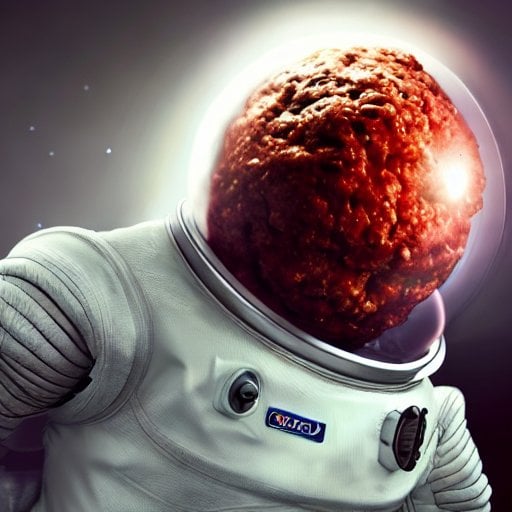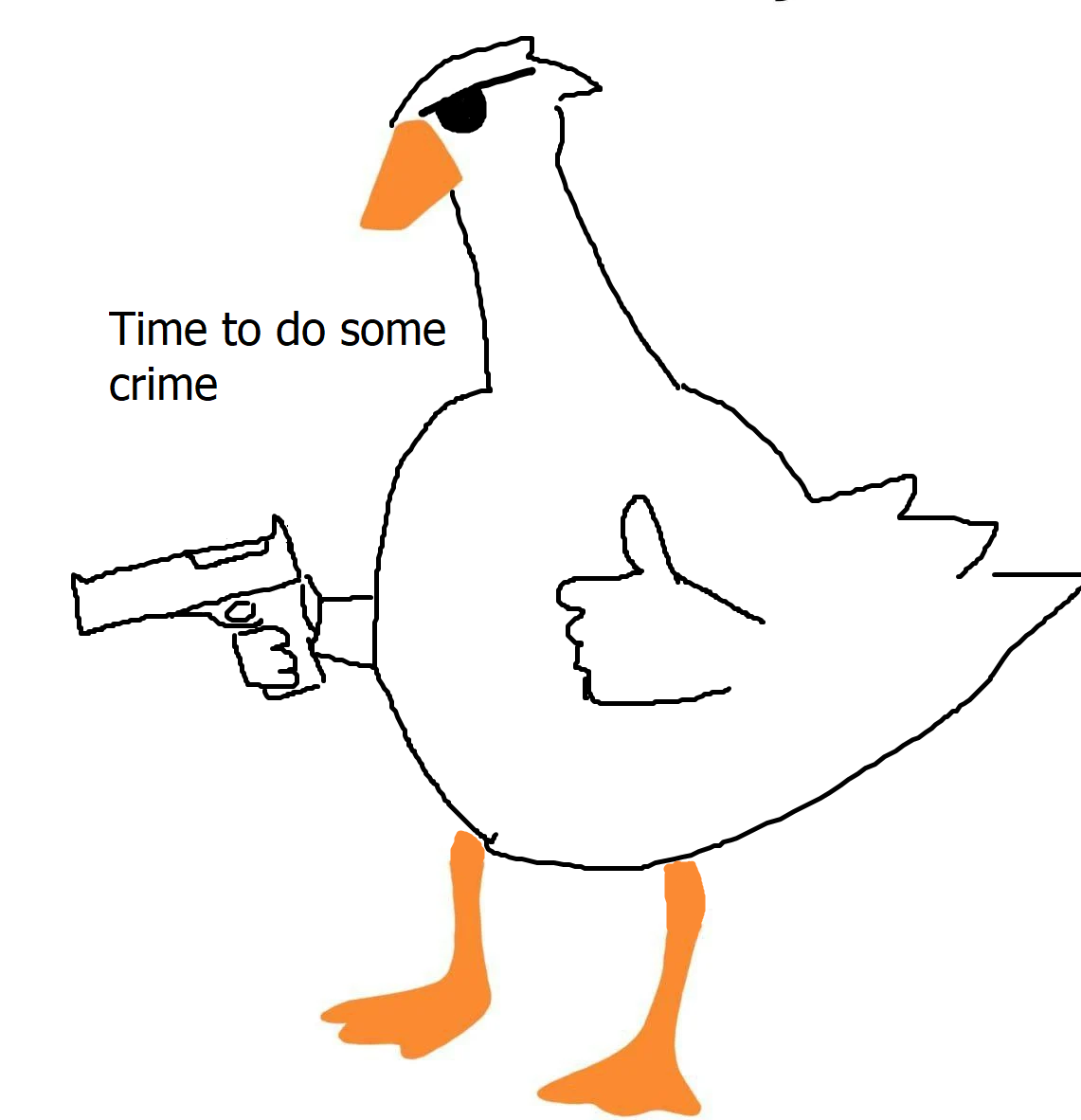According to the article the females don’t fare any better either.
I didn’t know this about octopi, what’s the point, evolutionarily, to self destruct after reproducing?
what’s the point, evolutionarily, to self destruct after reproducing?
There is no point, evolution is about successful reproduction and everything else is just random chance.
If a evolutionary tweak happens that gives your off spring better chances, but your arms fall off after sex then it’ll probably perpetuate.
Just goon forever
Gooners win again
Wouldn’t it make them easier to he hunted by prey or just die from not being careful
People with dementia can end up getting themselves fatally injured so I don’t see an octopus can’t
So I don’t see how it’s beneficial to help them survive
It’s not but, the evolutionary goal is compete.
There’s no way for the octopus to pick a mate with out the side effect, so the lack of post-nut clarity continues through the generations.
Maybe them dying is the bonus, eliminating the old blood.
No that’s absolutely not true, every part of evolution happens for a reason and those we don’t know, we research until we find out why
I think the point the other guy is pointing out, is that good and bad evolutionary traits are often connected - or more helpfully stated, evolutionary traits can have both benefits and drawbacks which don’t immediately seem related to the same trait.
It’s quite possible that octopi sex dementia is just a drawback to another trait which is very beneficial, so the dementia was just a bad aspect of a good trait that propagated forward. This happens all the time in different animal biologies.
No, that’s what I am saying. They are saying that it’s a random effect.
Everything about biology is a random effect. Even a mutation that’s selected for wasn’t planned; it just happened by chance. Like if you’re an aquatic species maybe you’ll end up being a strong swimmer over generations, but the water doesn’t pressure you towards that on its own. You have to coincidentally develop flukes that make you a stronger swimmer before those traits can be selected for.
Sometimes traits that get passed down aren’t beneficial at all because they don’t make an impact on reproduction. Think of an animal that comes in many colors like a house cat or certain fish species. In such cases it’s clear that the color of the animal doesn’t have any bearing on its ability to reproduce, so a variety of colors are passed down for no particular reason.
No, what we call random is when it’s unpredictable. The more unpredictable, the better “quality” of the random. Any generative process, and huge amounts of systems you use every day use random but systems emerge from the chaos. And no. Traits that aren’t beneficial are extremely rare and we think it’s because we are missing why it was useful.
That is not how your comment reads. It reads like you think every trait exists as an advantage and propagates because it is a benefit. Plenty of traits propagate as side effects, which is how their comment read to me.
Not really, and I think it’s because any unnecessary trait is an extra cost. But you can have your belief or even think we were magiced by an all powerful entity
unnecessary traits might not always lead to extra cost, and even then, the extra cost might not always lead to extinction.
the extinction usually happens when a trait that represents a disadvantage in a sufficiently heavy competition for survival. If the competition is low enough, the trait may survive.
everything else is just random chance.
nope, then you’d see some of same species showing the behaviour, others not.
Sorry I’m really struggling to parse what you are saying here 😄 my fault.
Can you explain further?To my understanding:
nope, then you’d see some of same species showing the behaviour, others not.
Nope, then you’d see some animals of the same species showing the new behaviour while other animals, still of the same species, would not.
Also my comment: We absoluteky see this, just on small scale tho. :|
Essentially their entire mating cycle is what causes this. They’ve got a gland behind the eye that puts them into mating mode and once it starts it never turns off until they overdose on sex hormone.
Most cephalopods are voracious hunters that eat and eat to grow big and then once mating mode switches on they just focus on mating, which results in a shit ton of babies. Every step of that cycle has an extremely high mortality rate resulting in strong selection pressures for the best of every phase. When they do something, they go big.
Holy shit what a way to go.
Get horny > have sex > orgasm > keep orgasming > die of too much orgasm
Living the dream.
I wonder what would happen if you removed the gland? How long could they live and how big could they get?
They’ve done that and they lived twice as long. https://www.washingtonpost.com/archive/politics/1977/12/01/octopus-surgery-has-a-surprising-end-longer-life/a8fabbce-0d76-400f-a9b4-e95b8b93094e/
Fascinating!
There’s a specific life history strategy called semelparity, which is what you’re describing (breeding once then dying). To my understanding, this is incentivized if the chances of getting a second attempt to breed are too low, and so it becomes more evolutionarily advantageous to simply go all out on the first attempt
Thanks, one solid answer! It could be that it used to be an advantage at some point and now it’s just perpetuated
To be clear, it’s still an advantage and for the ones that it isn’t they don’t die after mating. Most cephalopods are both predators and prey that life cycle results in a very high mortality rate. If you don’t hunt enough, you fail and if you get eaten you fail. The deep cold water ones though, tend to have to live longer due to less prey and have fewer predators so they tend to not die after mating.
Semelparity: “Fuck it, I’m gonna nut to death”
deleted by creator
That makes sense, if there is an organism that is a very good predator, and the chances to breed a second time are too low, then if the organism doesn’t die it will be consuming the resources of those who can breed. Natural selection must prioritize having descendents over long living, because not having descendents is extinction.
To prevent decrepit politicians who already had their chance from usurping the resources of the next generation and pulling up the ladder behind them?
You know… Octopus politicians
Hmmm… Looking at Cthulu and not sure what to think about here
Stayed a virgin long enough for the wizard powers to really kick in.
Pro: they die shortly after mating
Con: they leave hundreds of nepobabies
Not everything in evolution ends up having a point. So long as a problem does not impact the propagation of children it can end up moving forward to the next generation.
I would guess that if there is an Evolutionary reason, it’s probably that octopi with this drive reproduced More than octopi that didn’t.
They reproduce so much because they forget they had already done it and believe they need to do it or else
Evolution doesn’t care what happens to you after reproduction because you’ve already passed on your genes at that point
I mean, yes, but if you’re not a vegetable afterwards, you will have more chances to reproduce. Therefore passing on your genes more
Evolution doesn’t make deliberate, strategic choices. Random mutations result in new behaviors/properties that may or may not be beneficial, and selection removes those mutations that prevent reproduction from the gene pool. Not every mutation will be beneficial, but as long as it’s not harmful enough to stop reproduction, it can persist.
If there were two groups of octopuses, one with the self-destructive behavior and one without, then there would be pressure from competition. In that situation, your point would have more of an impact. But without that pressure, there’s nothing to drive the selection. And the mutation won’t occur just because it would be helpful for it to do so - it’s random.
At least, that’s how I understand it. I’m not a biologist or anything.
yes, that’s the point I’m trying to reinforce. There has to be “a reason” that getting stupider after mating is a succesful trait, otherwise it wouldn’t be there.
The question that was asked was: what is the reason? So far I’ve only seen speculation in this thread
As was said before: The genes are already passed onto the next generation. It doesn’t matter if the parents become stupid now. There’s no evolutionary advantage to become more or less stupid at this point.
It became like it is now by some random chance(s).
SkaveRat is addressing my original question: I’m asking if there is an advantageous reason for this phenomenon. You seem to suggest it’s a spandrel at best, and fair enough, that could be the answer. It probably is a spandrel, I also believe that.
However spandrels usually don’t reduce future chances or reproduction, and this one clearly does, so I was asking perhaps there is an advantage to this feature (not a spandrel then). Or at least an explanation for its existence from a genetic perspective, ie. the genes triggering the self destructing behavior are also the same ones responsible for a major survivability feature.
The reason behind spandrels existing can sometimes be explained other than “random”, as it happens with the human chin for example - apparently someone figured out it’s physically impossible for a chin not to appear if you are deforming maxillary bones to flatten into a face.
So far here nobody knows for sure about the octopus, and I gather it’s because science doesn’t yet have a consensus on the matter. But everyone has been quick to assure me it’s just random and that there isn’t anything else to it without any scientific backing.
I suspect the responses you’re getting stem from the original phrasing:
what’s the point, evolutionarily, to self destruct after reproducing
The question has an implicit claim that there IS a point, which people are rightly pointing out is not necessarily the case (as you have acknowledged). It certainly is an interesting question to wonder if there could be some benefit anyway, so it would probably have helped to frame it that way.
Not saying anyone is required to meet any kind of bar in the level of discourse in a casual online forum, just an observation of cause and effect, for what it’s worth.
It is definitely more successful than the previous strategy in one of the ancestors was (or else it wouldn’t have been selected for), and mutations that reduce the dementia and allow for more reproductive cycles seen to negatively influence reproduction in either fitness or number of the offspring or chance of successful reproduction, so the trait persists.
Since this is a numbers game, even miniscule differences in reproductive success (which isn’t clearly measurable in the wild) have a large impact on genetic drift.
Since the origin of the current behavior lies in the past, it might not be possible to see what evolutionary pressure induced the behavior in the first place.
that’s not how it works.
It is more advantageous to have more than 1 shot at spreading your genes than having only a single one.
Yes, your genes will be spread with just reproducing once, but they will be even more spread if you have a long and productive live with even more offspring
The YT channel primer actually made a video about rougjly this topic recently
Tell that to all the animals that only have one shot. There are quite a lot of them and usually they all lay thousands of eggs.
Probably the most well known of them is the salmon. Only about 5% of them survive the procreation after the salmon run (of those salmon species that actually do the run).
There doesn’t have to be reason for it to help, all that matters is that there isnt a sufficient enough of am evolutionary hinderance to prevent reproduction. The octopi reproduced, so their traits pass on.
Thank you, so far you’re the only one addressing my question. The answer could very well be that it’s a spandrel, but just like you said it would be speculation like anything else- nobody here daring to say “nobody in the scientific community has a solid theory, we don’t know for sure”
yeah but octopi are intensely successful hunters. this may be either a mechanism that helps prevent resource scarcity, or it could prevent parent/offspring mating
They also lay tens of thousands of eggs at once.
Take that point and explain humans living to about 100 after breeding from 20 to 40, and kids taking ~15 years to become good enough
Human tribes doing well is good for making children successful, old women have much better skills in finding whatever plant matter they’re gathering, old men are better at tracking and stalking prey. The old people teach the young.
We evolved towards longer lifespans because groups that live longer survive and continue better
whatever works…
I read that it’s so the parents don’t compete for resources with their young, helping to support the young’s survival
Fair, another possibility, thanks for the answer
Reproduction is the goal. It could be as simple as giving the young a chance to out compete their r****ded parents for limited food.
This is how biologists interpreted ghosting
This happened to me. No joke. I lost half a standard deviation from my iq for each child i had. #dunceLife
Are you sure it’s not because of chronic exhaustion for several months in a row instead of the sex?
I can keep it up for a good while, but several months is excessive.
He never said the kids were his…
The literal version of “man has enough blood to operate his brain or his penis, but not both at once.”
What?
Octopuses didn’t get post nut clarity.
or maybe they do and it’s unfathomable to the rest of us
Eldritch knowledge beyond our understanding
Cthulhu was just a normal octupus that just kept on jacking off, reaching untold and forgotten knowledge, dooming this universe with his eldridge gooning
Octopus nuts and it realizes it’s mere empty space perceiving itself.
Nuts, immediately becomes Nihilistic.
Me too, octopus, me too.
Nutvana
If a human has sex with an octopus will the same thing happen to them? Asking for a friend.
wcgw
Why don’t you find out for us?
I’m not allowed at the aquarium any more :(
Oh well, we will ask the Deep, or a princess.
Same tbh
yep. now i’m a dad!
Good. They deserve it. Octopuses are dicks. They keep demanding you to call “octopi.” Sure. When you start calling me and my homies squidi, I’ll start calling you guys octopi.
But no, they can’t see past their octopus privilege. As if having two fewer arms made them superior.
Octopi is the oldest plural form of octopus, coming from the belief that Latin origins should have Latin endings. However, octopus is not a simple Latin word, but a Latinized form of the Greek word októpus. Consequently, its “correct” plural form would logically be octopodes.
Nowadays “octopodes” and octopuses" are both acceptable, the latter being more regularly used.
“Squid” on the other hand isn’t Latin or Greek, of unknowns origin, probably from a sailor’s variant of “squirt”; late 15c., squirten, squyrten “to spit water from the mouth” (intransitive), a word of uncertain origin, perhaps via Middle Dutch or Middle Low German, probably ultimately imitative.
Post nut catastrophe :/
So Timothy was lying






















